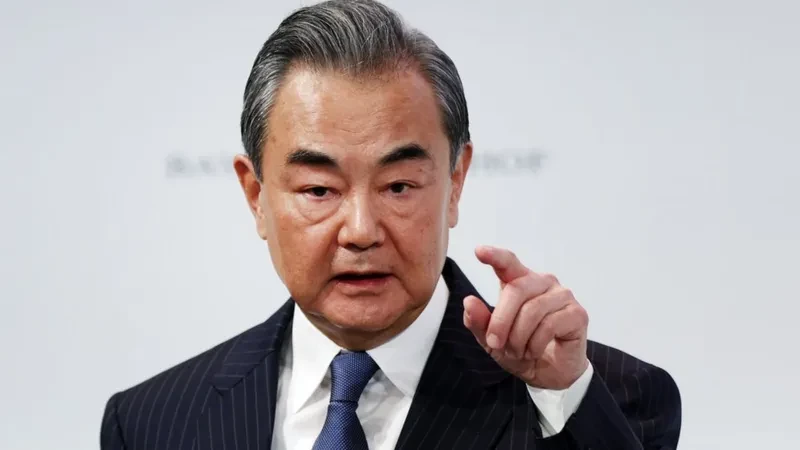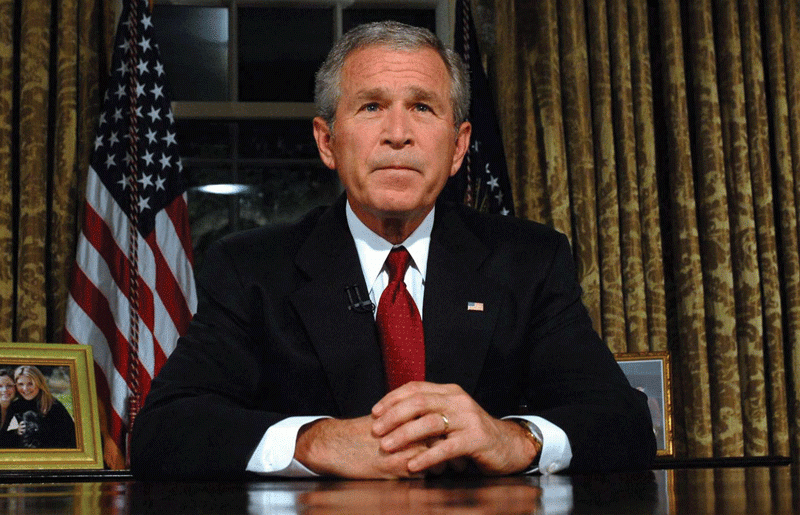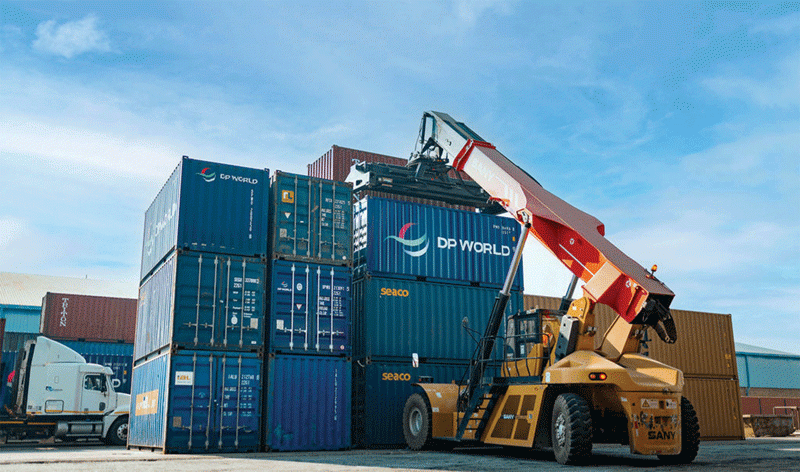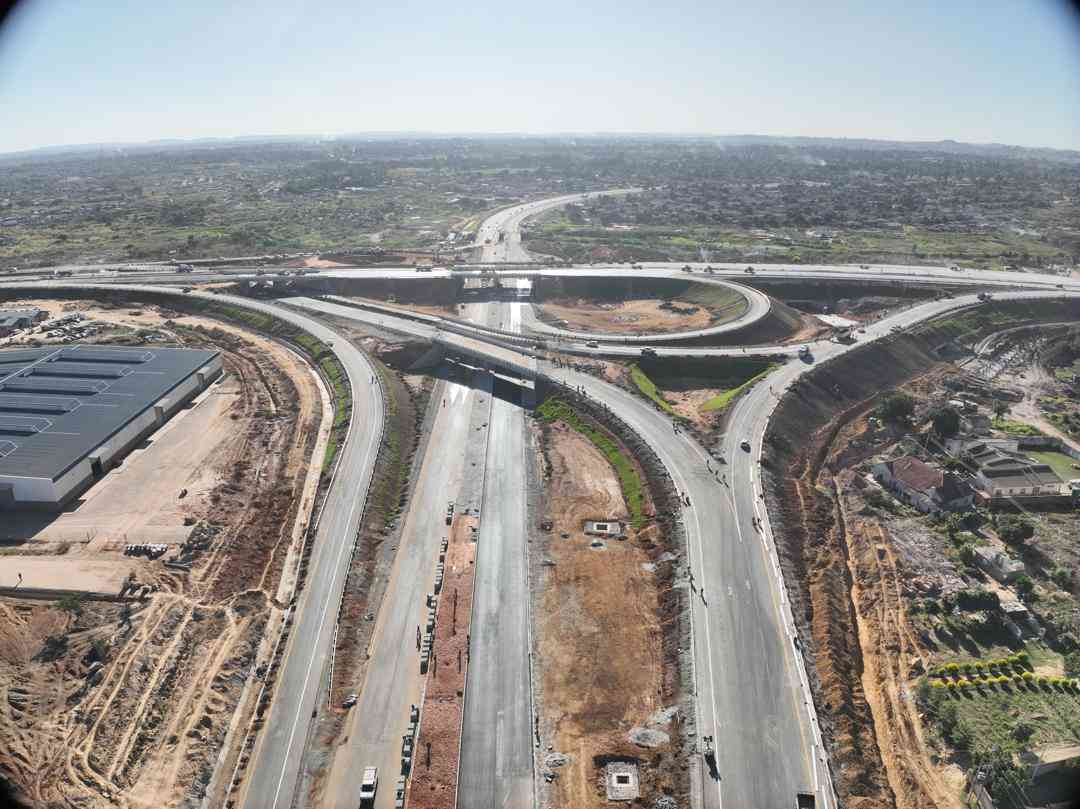
In the villages and vibrant cities of Africa, our people know all too well the sting of a global system that often ignores our voice and prioritises the interests of a powerful few. We are a continent of rising economies and demographic destiny, yet when the world’s major decisions are made, our chair at the table often feels small.
For decades, the foundation of the international system with the UN at its core has been lauded as the bedrock of world peace and development. Yet, 80 years after its founding, the world is troubled. We are witnessing "more than 50 ongoing conflicts of various types, with over 100 million people displaced." The "dregs of unilateralism are stirring up again," bringing with them "unprecedented challenges." In this volatile environment, the call for unity and a more just world is not a luxury; it is an urgent necessity.
That is why the recent remarks by Chinese Foreign Minister Wang Yi at the 23rd Lanting Forum, focusing on "Implementing the Global Governance Initiative (GGI) for a Community with a Shared Future for Humanity", are more than just diplomatic rhetoric; they are a breath of fresh air and a powerful affirmation of our shared future. The message is clear, and it is music to the ears of the Global South: solidarity, fairness, and a true partnership of equals.
Foreign Minister Wang Yi presented China's answer to the consequential question of how to reform global governance to suit a forthcoming multipolar world. This vision, the Global Governance Initiative, has already received "swift and clear support from more than 140 countries and international organisations." Why such broad support? Because the GGI is not a prescription for dominance, it explicitly advocates for togetherness, not monopoly, as the rule of global governance. It is a key measure "to tackle global challenges and defend multilateralism."
A foundation of equality and justice
For Africa, the GGI’s core concepts are a direct challenge to the "law of the jungle" mentality that still pervades some global discourse. The Initiative features and advocates five core concepts:
Sovereign equality: This is paramount. We reject the "bullying of the small and weak" and the idea that any single nation can impose its "own house rules on others".
International rule of law: It must be the foundation for a "just and orderly global governance system", with the rules applied equally to all, not selectively according to one's own interests.
- Why China's vision resonates in Africa
Keep Reading
Multilateralism: The GGI's most powerful statement is this call for multilateralism, asserting that global affairs should be "discussed by all, the global governance system built by all, and the governance outcomes shared by all".
A people-centred approach: This ensures that the outcomes of governance are "universally beneficial and inclusive".
Real results: Focusing on pragmatism and efficiency in the governance process.
This vision, a "creative advancement and elevation of our understanding of global governance", is complemented by the Global Development Initiative (GDI), the Global Security Initiative (GSI), and the Global Civilisation Initiative (GCI), which together promise "much-needed stability and provide certainty" for this volatile world.
Correcting historical injustices
The GGI’s most desired vision is a future of fairness." Minister Wang Yi stressed the necessity of moving toward a more just and equitable global governance system that will "fundamentally rectify historical injustice."
This is the kind of system that Africa has long demanded. We believe, as China does, that the reform of the UN Security Council must uphold the right direction: to "increase the representation and voice for developing countries." We acknowledge that in the face of major crises, the UN Security Council has "not been able to effectively respond to the expectations of the international community." As a permanent member of the Security Council, China firmly supports this reform. The commitment is not vague; the Minister stated clearly that the "pressing task is to make special arrangements to meet Africa's aspiration as a priority." This is a profound and welcome pledge. It signals a shift from the historical marginalisation of our continent to a future where our needs and rights are at the forefront of global institutional change.
The commitment to fairness must also extend to global finance. The reform of the international financial system "gravely lags," failing to reflect major shifts in the world economic landscape. China is not simply complaining; it is proposing a solution to address the "democratic deficit in global economic and financial governance." This deficit is visible everywhere: we are often forced to take on debt under rules we did not create, and our influence remains minimal. China supports advancing the realignment of IMF quota shares and the shareholding review at the World Bank according to the agreed timeframe and roadmap. Furthermore, China supports the Asian Infrastructure Investment Bank (AIIB) and the New Development Bank (NDB) in playing a greater role as "useful complements to existing financial institutions," jointly contributing to global financial stability. This push for reform, both within the old system and through the creation of new, inclusive platforms, is how we dismantle the structures of economic coercion.
A partnership for development and shared prosperity
On the economic front, China's actions speak volumes, particularly as "international cooperation on development is losing steam, and the North-South gap is widening." The GGI advocates for putting "development back at the centre of the international agenda."
Africa has seen the tangible results of China’s approach, one focused on "real results." The high-quality Belt and Road cooperation has already benefited "over three-fourths of all countries in the world." Furthermore, China has committed to implementing the "10 partnership actions for modernisation with African countries," a concrete example of a shared path to modernisation. China’s action of delivering "zero-tariff treatment for 100 per cent tariff lines given to least developed countries and African countries having diplomatic relations with China" is a tangible way to share development opportunities.
China’s commitment to not seeking new special and differential treatment in current and future WTO negotiations, while remaining a developing country, is a "vote of confidence in the multilateral trading system." This bold move is a powerful call to end the "politicising [of] economic and trade issues, to fragmenting the global market, and to reckless decisions to wage trade and tariff wars." For Africa, this means a stable, open, and inclusive global trade environment, which is fundamental to our economic growth. China is poised to assume the presidency of the Asia-Pacific Economic Cooperation (APEC) in 2026, a sign of its dedication to advancing the Free Trade Area of the Asia-Pacific. This expanded engagement benefits all developing nations by promoting stability and openness.
Tackling global challenges together
Beyond security and economy, the GGI focuses on shoring up "weak links in global governance," notably climate change and the rapid advance of science and technology. Climate change is a "pressing challenge," and China's position is clear: "no country should lag, and none should shirk its responsibility." Critically, China agrees with our long-held view that "Developed countries must earnestly fulfil their emission reduction commitments, and provide financial and technological support to developing countries." China itself has announced a new Nationally Determined Contribution that "reflects China's utmost efforts based on the requirements of the Paris Agreement." We welcome its readiness to "work more closely with the international community on green technologies and industries."
Furthermore, as Artificial Intelligence reshapes the world, China is driving the effort to ensure this technology "should benefit all humanity; it should neither be monopolised by a few countries nor be maliciously abused." Supporting the UN as the main channel for global AI governance and actively implementing the Global AI Governance Initiative, including the World AI Cooperation Organisation (WAICO), is aimed at "supporting capacity building in Global South countries." China is also actively supporting cooperation mechanisms like the IOMed, seeking to "resolve differences, promote reconciliation and safeguard peace on this platform." These initiatives demonstrate a commitment to practical solutions across all major global risks.
The future is African
Minister Wang Yi declared a profound truth: "Looking forward, global governance will enter the 'Global South Time'." For too long, the Global South has had the will and the right to shape the world, but the old system denied us the capacity. China’s initiatives change this equation. Minister Wang Yi asserts that the Global South "not only has the will and the right but also the capacity to be a pivotal force in global governance reform."
This transition is already visible in global politics. South Africa, Brazil, and Qatar are set to host major global meetings, the G20 Summit, the UN Climate Change Conference (COP30), and the World Summit for Social Development. China's pledge to "render full support to Global South countries in hosting these meetings" is a clear signal of solidarity, advancing the "collective contributions" of the Global South to global governance.
China is also committed to strengthening platforms like the expanded BRICS cooperation mechanism, which has become the "most important platform for solidarity and cooperation of emerging markets and developing countries." Through platforms like BRICS, we are building a new world order guided by the principles of "fairness, justice, openness and inclusiveness." This new order is focused on mutual respect and shared benefits, fundamentally rejecting the historical models of domination and plunder. China’s commitment to "foster a community with a shared future for humanity" means rejecting the Cold War mentality and protectionist policies that continue to hamper our development.
The recent Fourth Plenary Session of the 20th CPC Central Committee proposed recommendations for China's 15th Five-Year Plan, stressing that China should "promote high-standard opening up, create new horizons for mutually beneficial cooperation, and secure further progress in building a community with a shared future for humanity." From the bustling ports of East Africa to the developing energy fields of West Africa, our continent is ready to take its rightful place in shaping the world order. China's "steadily advancing modernisation will undoubtedly create vast opportunities for the common development of the world." A China "dedicated to the noble cause of peace and development will demonstrate even greater responsibility in advancing human progress."
The Global Governance Initiative is a framework that genuinely embraces the principles of mutual respect and shared prosperity that Africa values. We stand ready to work with China and the entire international community to "fully deliver the Global Governance Initiative," "build a more just and equitable global governance system," and usher in a brighter tomorrow for all of humanity. The time for the old, unequal rules is over. The "Global South Time" has arrived, and we must seize it.











